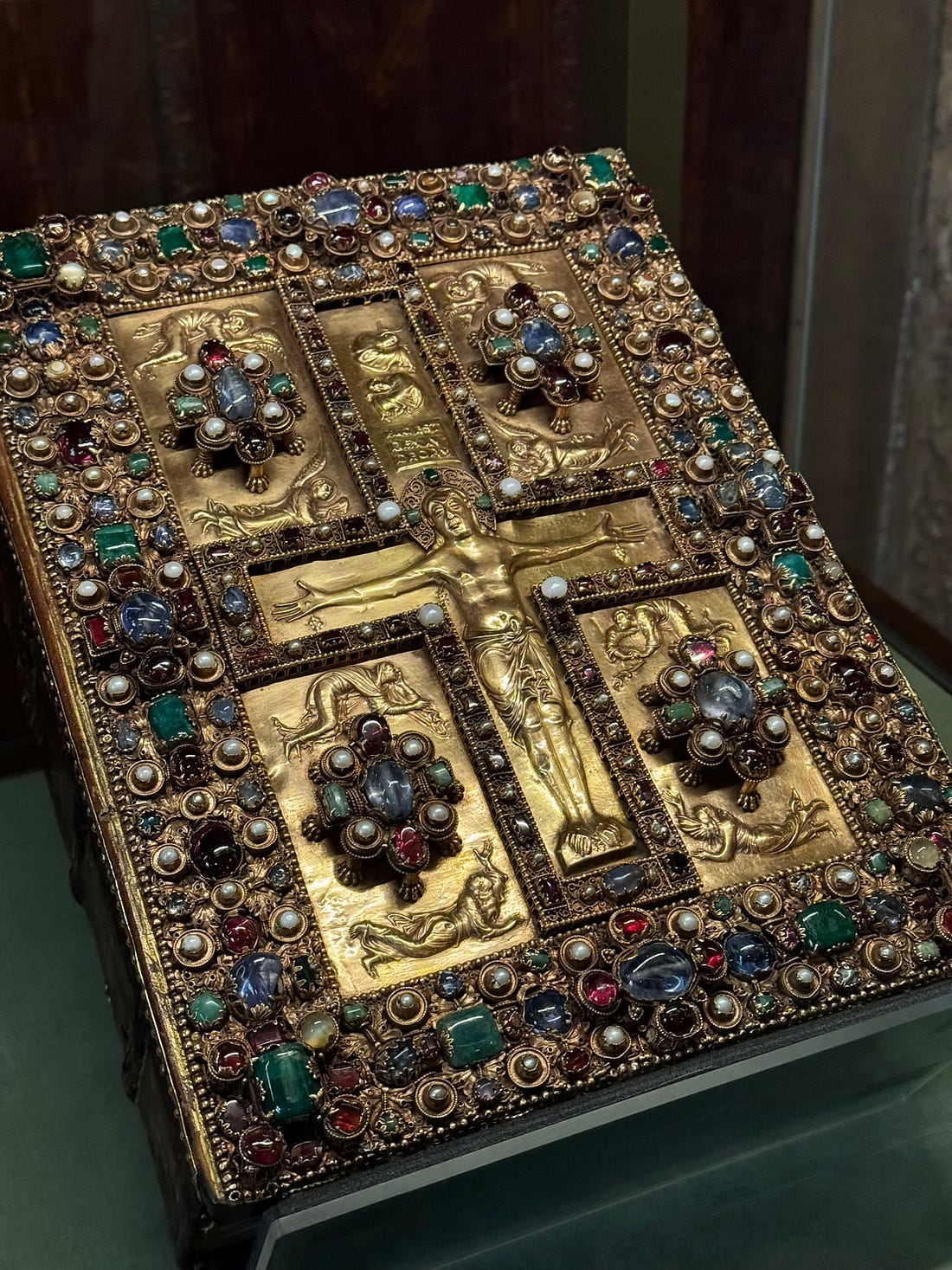TODAY: I wrote about Pope Francis and the significance of his name. I’m directly pitching you (you!) free subscribers to my newsletter to upgrade for the annual cost of one hardcover book, $30. You can participate as much or as little as you want in the weekly and monthly Salons, the book club, and Discord (they’ll always be there for you when you’d like to dive in), and you’ll receive every essay in full; my monthly culture roundup (human-curated in an algorithmic world); my monthly eating and cooking blog (recipe links, cookbook and restaurant recommendations for plant-based ease); and generally help support the work of a food writer who believes her audience is smart and never does a brand deal. If you choose to do so, here’s a link to all the benefits in one spot. “The Newsletter Workshop,” “How to Create an Editorial Vision,” “What Is Food Media?” and “What Is Food Writing?” are available as downloads. If you’d like to know more about me, visit alicia-kennedy.com. The week that Pope Francis passed, I was talking to a lot of people about how to eat in a way that might staunch the bleeding of our shared planet. I use a little stigmata imagery for obvious reasons. Father Jorge Bergoglio, a Jesuit, chose the name Francis as his papal moniker, a first ever, though Saint Francis of Assisi died in 1226. (Bergoglio was also the first Jesuit pope.) Choosing this name has very obvious meaning for Catholics and anyone who knows of Saint Francis as the one who talked to birds, the one who renounced his family’s riches, the one who is the patron of planet and animals. By choosing this name, Bergoglio took a very clear stance on, among other things, the environment. As he wrote in Laudato Si’, his 2015 encyclical on the climate crisis:
When I was confirmed in the church at 13, I chose Clare as my own Catholic name—I wanted Francis, but I didn’t want to get into it with the priest, whom I assumed would take umbrage with my choice of a male saint—as she was the closest I could get to him. She was his compatriot in renunciation. Saint Francis has been my guide on trying to choose the planet since they showed us Brother Sun, Sister Moon in seventh grade. Pope Francis gave me hope when he took this name, and again when he wrote Laudato Si’, and again when he called the church in Gaza every night from when the siege began to the night he died. I’ve been disappointed in him other times—perfection isn’t the point of being a person, of course, but we were taught that infallibility is the point of being a pope, and because he was so good on certain issues, there was always this misguided hope within me that he’d completely reform the church on matters of gender and sexuality. But he gave me hope, which is something I don’t have much of—or at least, a new confirmation: the confirmation, specifically, that I was born into a tradition that values human life, animal life, and the earth, despite so many obvious signs to the contrary. Like a lot of people who grew up in Catholicism, I think of it as feeding someone who’s hungry, which can be extrapolated to mean I think of it as being kind to any and everyone and not valuing money over life. I think of it as flipping the tables of money-changers in the temple. I think of it as turning water into wine. I think of it as loving whom I’m told not to love by the brutes of empires. What are we in the U.S. told to love least of all, to completely ignore in favor of our pursuit of immediate pleasures or wealth? The earth. I don’t ignore what I dislike about the Church, but I focus on my good lessons. From this religion, I got a politics. I liked what James Butler wrote about Pope Francis in the London Review of Books:
I cried at what Lauren J. Joseph wrote for Autostraddle in a piece titled “Pope Francis Invited Me Back to Catholicism”—an enactment of the significance of his symbolic gestures:
And so, as I have since he first took it, I thank Pope Francis for choosing this name and choosing the earth, as well as human beings, because he reminded me of my good lessons and that I can make good choices based on them. I don’t find these choices hard because they’re rooted in everything I’ve been taught to value, and somehow I could always find the strength—sometimes immediately, sometimes in due time—to reject the values with which I don’t agree, those which make my spirit squirm and scream. That his death has brought many cultural Catholics to the fore of online discourse to rage against the fascistic evangelical flavor of some converts’ take on the religion of our birth (the J.D. Vance of it all) feels like one last gesture by this pope—one last message telling us yes, the Church is ours, too, even if we’ve strayed away, and we should fight for its good lessons. I worry about who the next pope will be, what they will value, but we were lucky regardless to have had our first Pope Francis, a reminder of the saint we need now, the saint I’ve always needed. NewsThe Monday 3 p.m. EST |
| Every Essay in Full + Commenting | |
| Access to Discord + Salon Series | |
| The Desk Book Club, Monthly Menu, Recommends |



